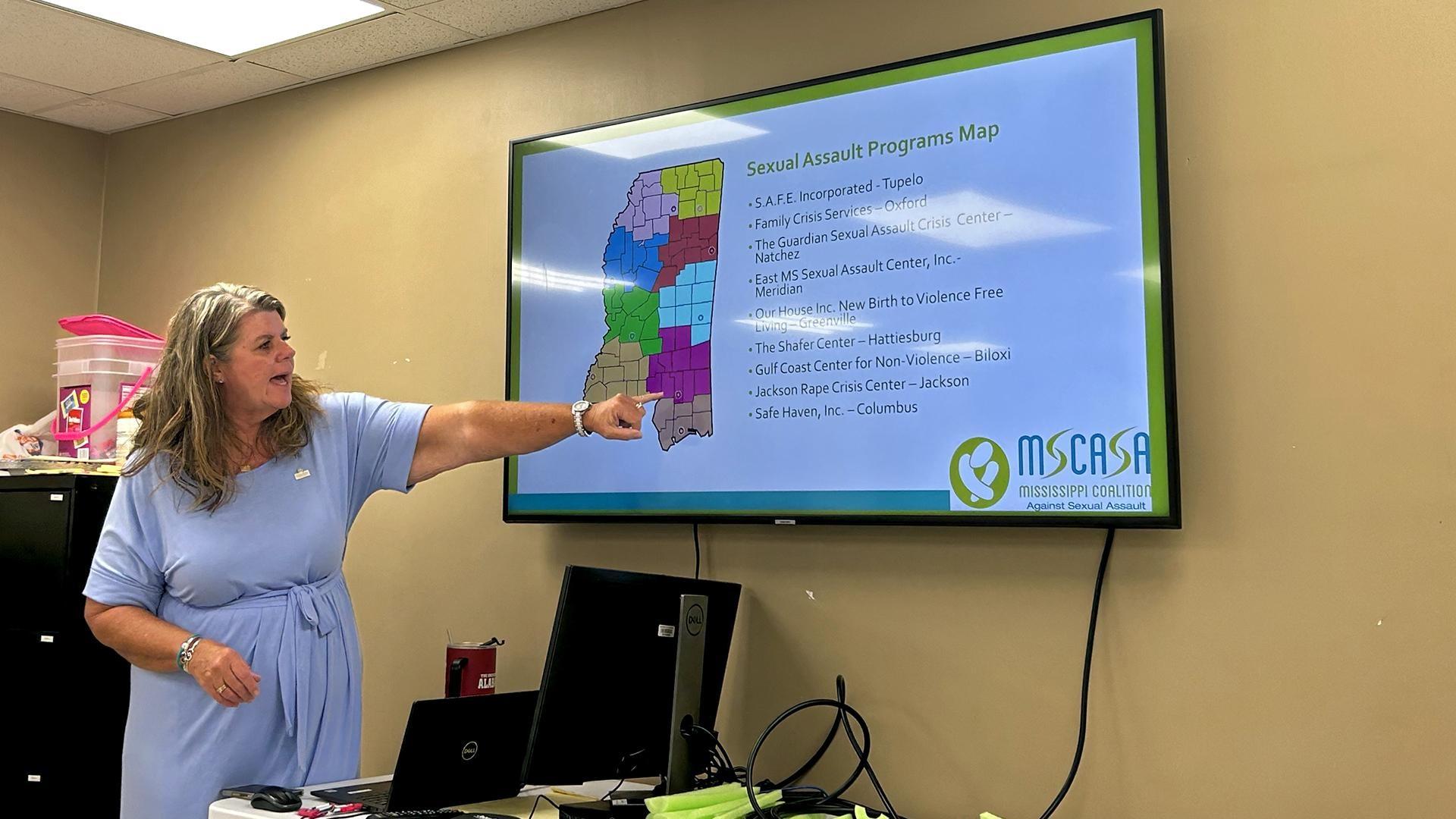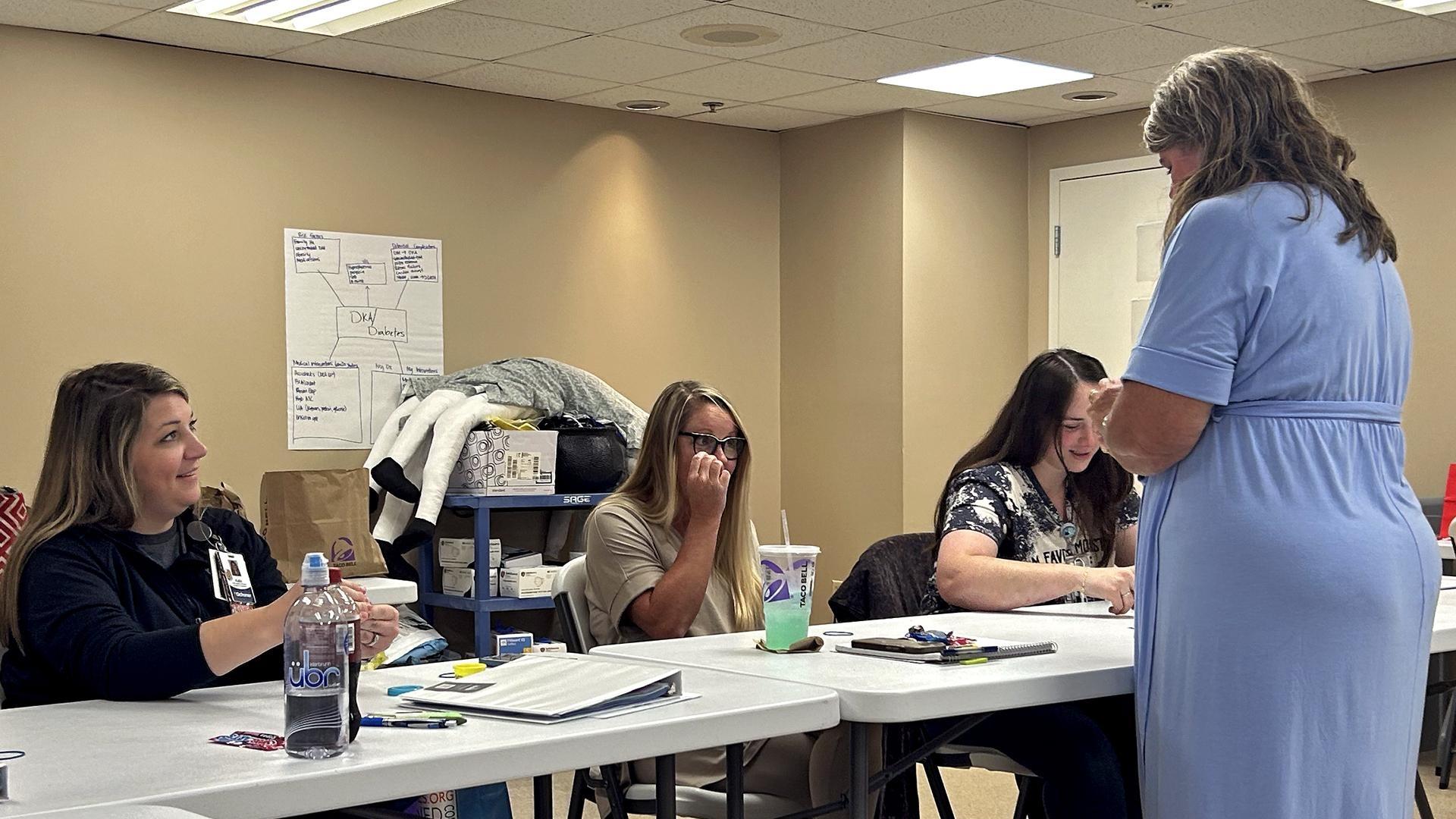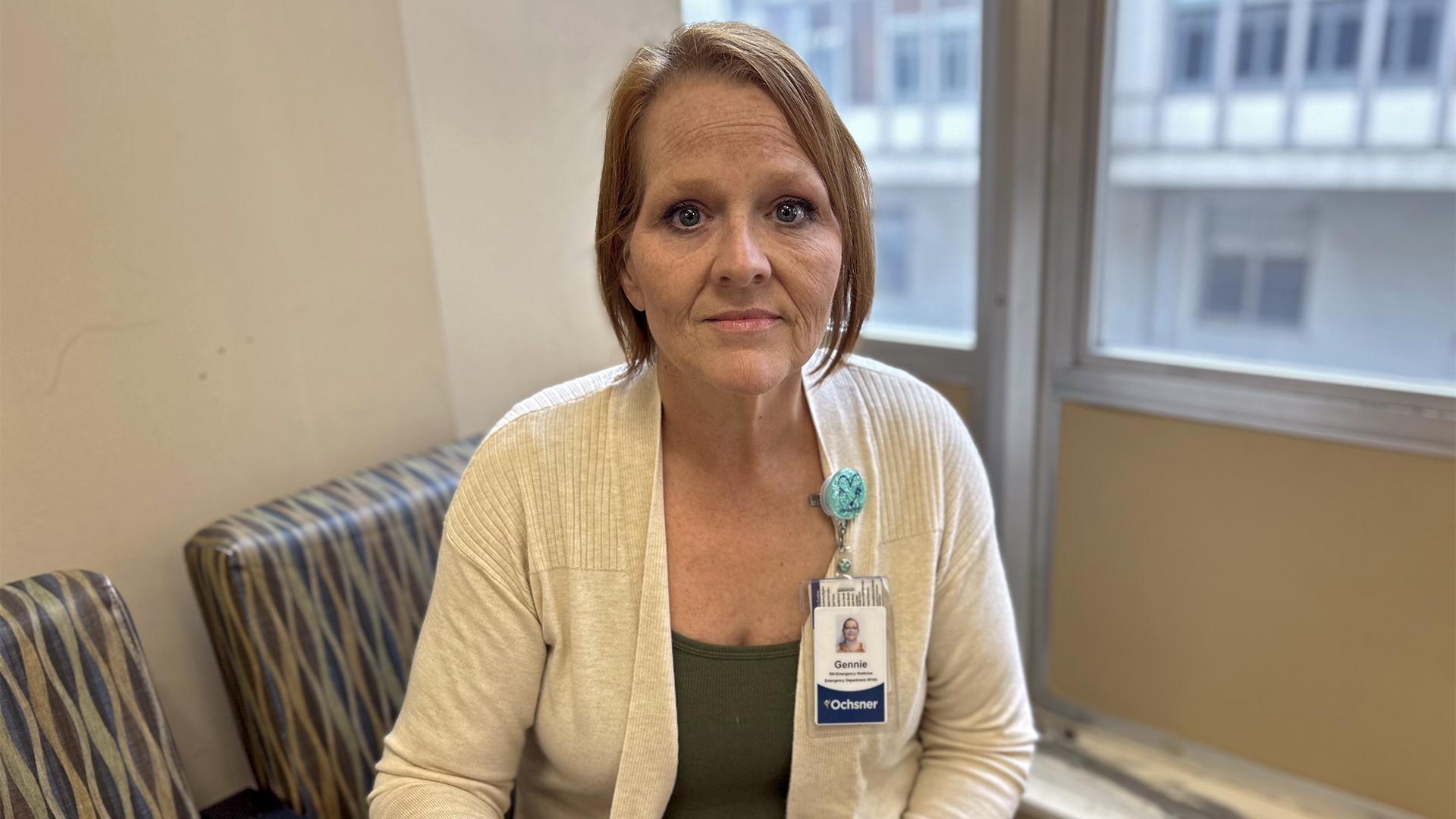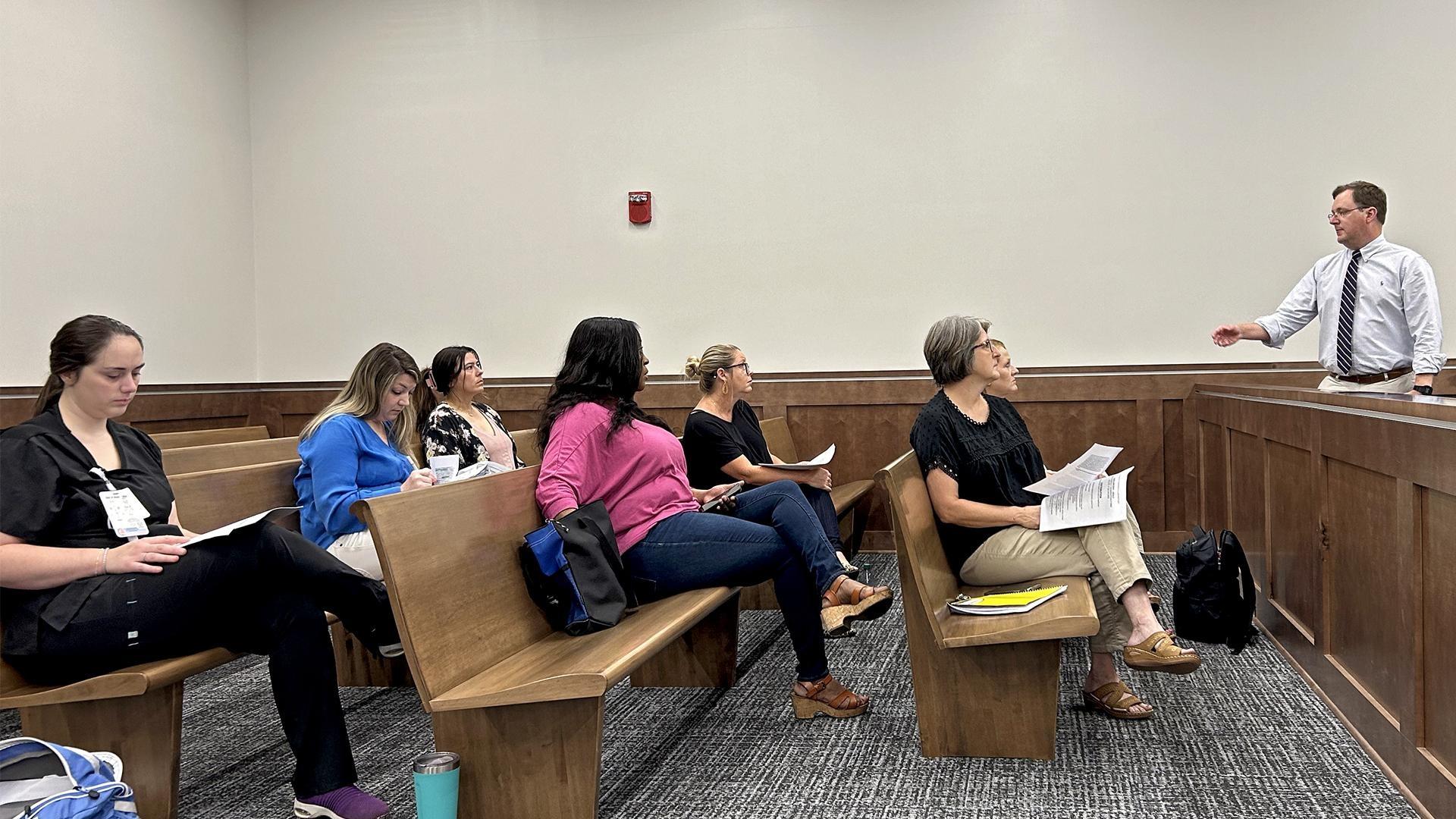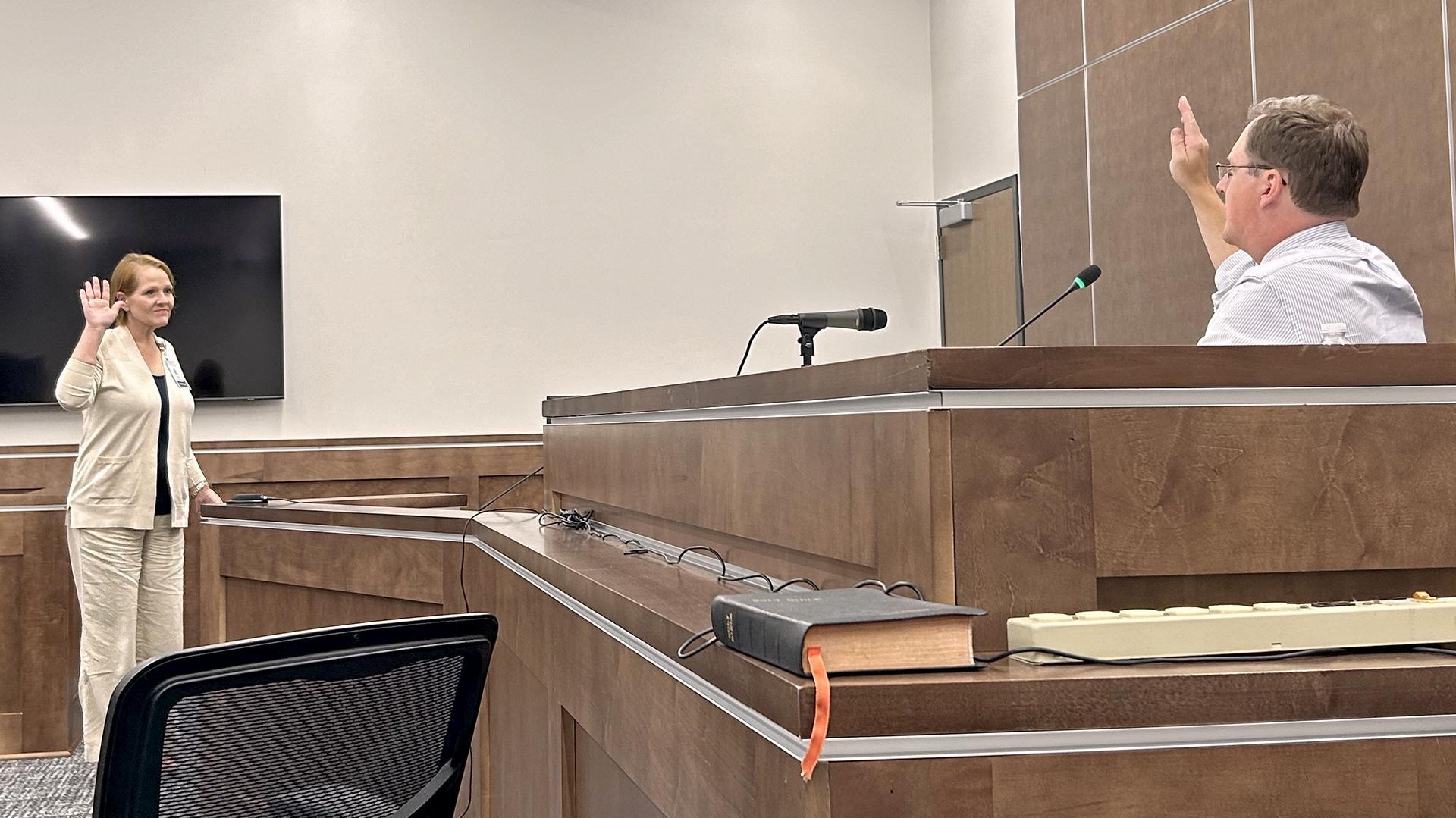Cochran takes a breath and nods at the words of encouragement offered by her fellow nurses in the benches. She makes her way to the stand, swears to tell the truth, the whole truth, and nothing but the truth. Then, Martin questions her about a fictional case the nurses had a chance to review — just like they would during direct testimony in a real trial.
“Miss Cochran, what color were the bruises that you observed?” Martin asks.
“Reddish blue,” Cochran answers.
Then comes the cross-examination.
Another assistant DA, Erich Jerscheid, posing as a defense lawyer, presses Cochran, trying to trip her up.
“Let me cut to the chase,” Jerscheid says at one point, ramping up the pressure. “You weren’t there when it happened, is that right?”
“Yes,” Cochran says.
“You saw nothing,” Jerscheid says.
“Right,” says Cochran.
“So you would agree with me that patients are not entirely truthful with their healthcare provider?” Jerscheid asks.
“Yeah,” Cochran says. “Some lie.”
This part can feel intimidating for the nurses. In fact, many nurses say it’s this fear of potentially having to testify in court that keeps some from becoming SANEs in the first place. They don’t want to make a mistake that could cost someone’s case — and they don’t know if they can handle the pressure of the courtroom.
After her testimony, the nurses get feedback from the pretend judge, the other lawyers and the instructors — tips on how to keep their cool and when they can push back. And then, it’s over.
“This is the part I was the most scared of,” Cochran says as she’s dismissed from the stand.
“Well, you did great,” Griffin, pretend judge, says.
